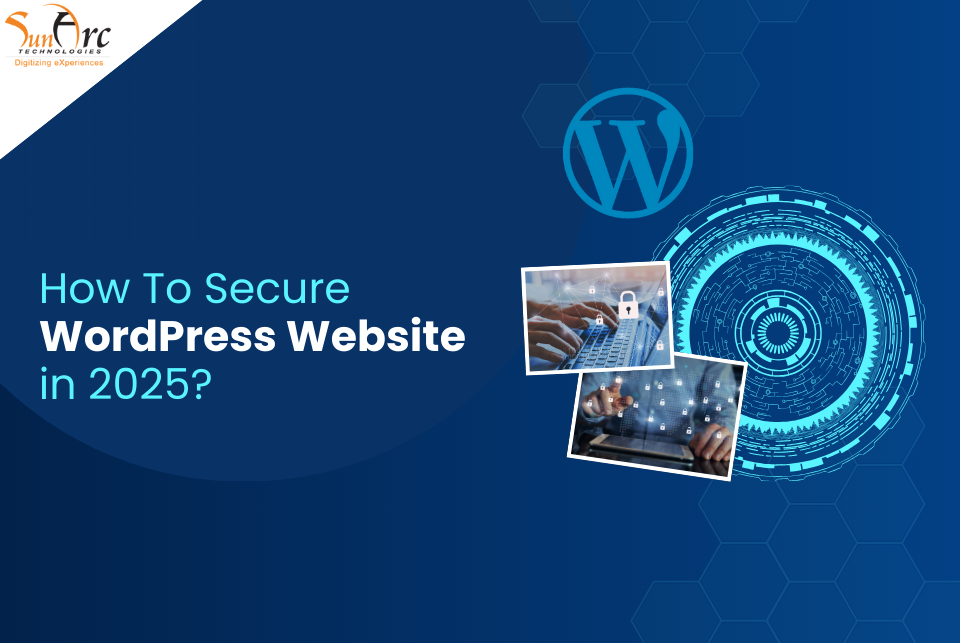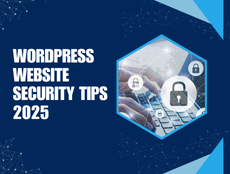WordPress powers over 40% of websites worldwide, making it a prime target for cyberattacks.
Hackers often exploit vulnerabilities in outdated plugins, weak passwords, and poor security configurations.
By following the best WordPress security practices, you can significantly reduce risks and keep your site protected.
This WordPress website security guide covers everything from updating your WordPress core to using firewalls and secure hosting services.

Keep WordPress Core, Themes, and Plugins Updated
One of the easiest yet most effective ways to enhance WordPress security is by keeping everything updated.
Updates fix security vulnerabilities and improve website performance. Always ensure that your WordPress core, themes, and plugins are running on the latest versions.
Enabling automatic updates can help, but make sure to back up your site before major updates to prevent any compatibility issues. Additionally, removing unused plugins and themes minimizes security risks by reducing entry points for potential attacks.
Use Strong User Authentication and Access Controls
Weak passwords and unrestricted user access are common security flaws that can compromise your website.
Using complex passwords with a combination of uppercase and lowercase letters, numbers, and special characters makes unauthorized access more difficult.
Implementing Two-Factor Authentication (2FA) adds an extra layer of security, requiring users to verify their identity beyond just entering a password.
Additionally, restricting admin access to only trusted users and assigning appropriate roles can prevent unauthorized changes to your website.
Install a WordPress Security Plugin
A security plugin helps detect and block threats before they can harm your website. Some of the best security plugins available for WordPress include Wordfence Security, Sucuri Security, and iThemes Security.
These plugins offer features such as malware scanning, firewall protection, and login attempt tracking. Installing a trusted security plugin ensures that your website remains protected from potential threats in real time.
Enable Web Application Firewall (WAF)
A Web Application Firewall (WAF) acts as a protective barrier between your website and potential attackers by filtering out malicious traffic.
Services like Cloudflare WAF, Sucuri WAF, and Astra Security provide robust firewall protection, preventing DDoS attacks and hacking attempts.
Enabling a WAF significantly enhances your site’s security and helps maintain its performance.
Secure Your Website with HTTPS and SSL Certificates
SSL certificates encrypt data between your site and its visitors, ensuring secure transactions and protecting sensitive information.
Websites with SSL certificates display a padlock icon in the address bar, boosting user trust. Many hosting providers offer free SSL certificates through Let’s Encrypt, while premium SSL certificates provide additional security features.
Enabling HTTPS in your WordPress settings further ensures that your site remains protected.
Protect the WordPress Admin Area
Hackers frequently target the WordPress admin area to gain unauthorized access. Changing the default login URL makes it harder for attackers to locate your login page.
Restricting admin access by IP address adds an additional layer of security by allowing only specific IPs to log in.
Adding Google reCAPTCHA to your login page further prevents automated brute-force attacks, ensuring that only legitimate users can access your site.
Limit Login Attempts and Monitor Activity
Limiting login attempts helps prevent brute-force attacks, where hackers try multiple password combinations to access your site.
Plugins like Login LockDown and Limit Login Attempts Reloaded restrict the number of failed login attempts and temporarily block suspicious IPs.
Monitoring login activity helps detect unauthorized access attempts, allowing you to take immediate action if needed.
Use Secure Hosting Services
Choosing a secure hosting provider is critical for maintaining website security.
Look for hosting services that offer built-in malware protection, DDoS mitigation, and regular security audits.
Some of the best WordPress hosting providers prioritize security by providing automatic updates, backups, and firewalls, ensuring your site remains protected from cyber threats.
Perform Regular Website Backups
Regular backups ensure that you can restore your website quickly in case of an attack or data loss.
Using backup plugins like UpdraftPlus, VaultPress, and BlogVault automates the backup process, allowing you to schedule regular backups. Storing backups in a secure location, such as cloud storage, ensures that your data remains safe and accessible when needed.
Scan and Remove Malware Regularly
Running regular malware scans helps detect vulnerabilities before they can be exploited. Security tools like MalCare, Sucuri SiteCheck, and Wordfence Scanner can identify and remove malware, keeping your website safe.
Setting up automatic malware scans ensures that threats are detected early and mitigated before they cause damage.
Conclusion
WordPress security is an ongoing process that requires vigilance and proactive measures. By implementing these best practices, including updating your site, using strong authentication, installing security plugins, enabling firewalls, and choosing secure hosting, you can significantly reduce the risk of cyber threats.
Taking action today to enhance your website security ensures a protected and smooth experience for your visitors in 2025 and beyond.
Stuck somewhere? Contact us today. We have the best wordpress developers who can help your website to make it secure.
FAQs
1. How often should I update my WordPress website?
Regularly check for updates and apply them immediately to avoid security vulnerabilities.
2. What is the best way to secure my WordPress website login?
Use strong passwords, enable 2FA, and limit login attempts.
3. Why is HTTPS important for website security?
HTTPS encrypts data, protecting it from hackers and ensuring secure transactions.
4. What are the top security plugins for WordPress?
Some of the best security plugins include Wordfence, Sucuri Security, and iThemes Security.
5. How can I back up my WordPress site?
Use plugins like UpdraftPlus or VaultPress for automated backups.

